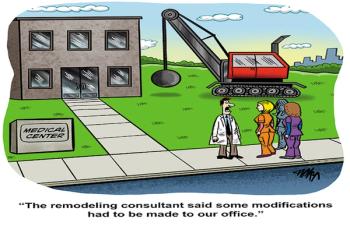
The operative word being extreme.

The operative word being extreme.

If your practice gives patients pricing information, you’ll be one of the few offering that information-which will separate you from the competition.

In-house medication dispensing can save patients money and improve medication adherence
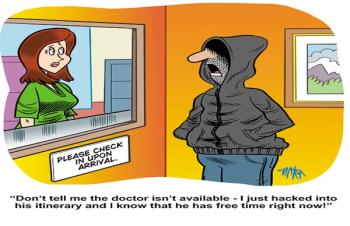
Our latest Funny Bone cartoon

Technology can serve a higher purpose in healthcare by enabling clinicians to easily communicate and share information without having to taking time away from patient care.

A recently retired physician reflects on his last patient and the healthcare system.

The answer to getting more affordable care and better results does not lie in paying doctors less. It lies in paying administrators less, and having a lot fewer of them.

If the choice of personal medical care offered by small practices is to be preserved, the rules of the game must change.

Many Americans still need help digesting information about heart disease and understanding their personal risk.

Don’t let the stress of inadequate preparation tarnish the first time your new colleagues see you in action.

There are concerns that could swallow up the direct primary care movement and shunt it from being a potential salvation for our system to a flash in the pan.

Primary care physicians are trapped in a non-sustainable business model.

A small group of independent physicians challenged a powerful hospital organization, and against all odds, won the day.
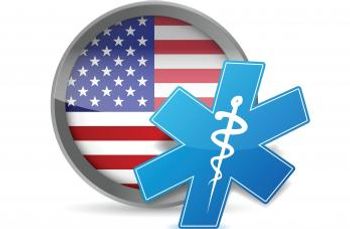
An analogy to help lawyer politicians understand healthcare and its financing

The patients’ needs cannot always win-and often don’t.
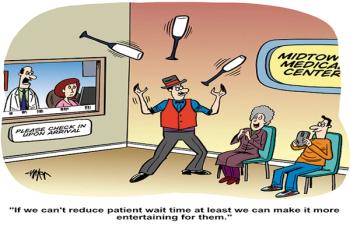

Physicians are thinking outside the box early in their careers.

When it comes to cybersecurity, 2018 was a banner year for the healthcare industry for a myriad of reasons, both good and bad.

Showing empathy improves patient satisfaction, but not every doctor is naturally good at expressing feelings to patients.

While there are many similarities between the two models, the differences turn direct care from a curiosity or sideshow to a potentially huge player in the American healthcare marketplace.
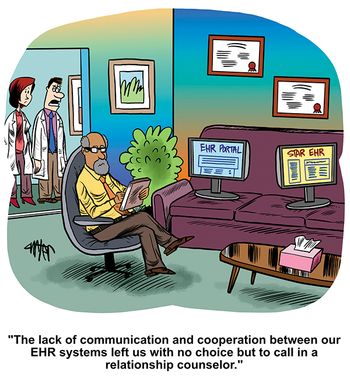
The solution to the lack of EHR interoperability

One medical group’s path to freedom lights the way for others.

The free market would provide abundant care.

Countless physician groups are grappling with how best to introduce and leverage genomics in their practices.

While Continuing Medical Education (CME) and journals have kept me afloat, it is essential to find new creative ways to keep pace with the previous academic rigor of residency.